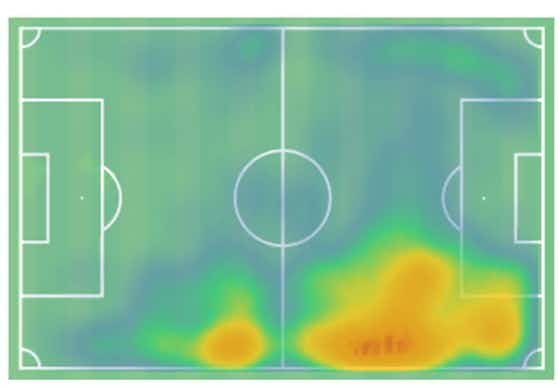Get Spanish Football News
·24 July 2020
PROSPECT | Takefusa Kubo

In partnership with
Yahoo sportsGet Spanish Football News
·24 July 2020

The focus on Asian footballing talent breaking through into Europe has exponentially increased as clubs further widen their global search parameters to find the next superstar. Real Madrid’s Takefusa Kubo joined the club aged 18 directly from his home nation of Japan.
The Spanish capital was not Kubo’s first experience of Spain however, aged 10, he joined Barcelona’s famous La Masia academy after a successful trial. He scored at a magnificent rate for the under 11s averaging more than two goals per game in the 30 games across the season, making him top scorer. His development continued in Spain, but Barcelona were later found to have violated FIFA’s international transfer policy regarding under 18s and Kubo was made ineligible to play.
Instead of sitting on his laurels, Kubo decided to return to Japan with Tokyo FC and unbelievably was promoted to the senior side at the age of 15. Ten days after his 18th birthday, Los Blancos had already placed themselves in a position to seal a free transfer for the now Japanese international.
Initially expected to play for the Castilla side, an impressive preseason meant the Madrid hierarchy decided a more demanding challenge should be laid out and so a loan move to Primera Division club Mallorca was agreed.
Kubo’s primary position and role has been as an inverted right winger, although he can play on the opposite flank and as a central attacking midfielder (the position he says he prefers). When watching Kubo, he always wants to receive the ball, consistently you will see him with his arm raised beckoning for a pass.
The Mallorca team do not shy away from this either, looking at the comparison of average passes received during games, Kubo receives the ball 16.77 times. Comparing this to his colleague on the opposite flank, the more experienced 29-year-old Lago Junior, the Ivorian receives the ball 17.02 times on average. Clear faith from the Mallorca side that the youngster can be trusted, and for good reason.
Kubo averages 1.94 shots per game with 46.3% hitting the target. These typically manifest from a delicate touch of the ball from the right further inside to strike a curling effort to the keeper’s far post. These shots, whilst frequent, are speculative. The desire to impress with the weight of a possible Santiago Bernabéu future on his shoulders does seem to have an impact on his game – he knows this.
Speaking to La Liga in January after his first league goal he said, “it’s not that scoring is my weakness, but to score a goal I have to be calmer at the final part of the play.” Kubo’s expected goals (xG), the statistic which details how likely it is a player will score, currently sits at 0.17. In comparison, his colleague Lago Junior who takes more shots with a lower average accuracy has an xG of 0.20.
This can be explained and linked to Kubo’s quote. The Japanese youngster needs to be calmer; he often shoots from tight angles or from further out when the option to pass and complete a possible one-two to open a better opportunity is available. Kubo will learn these integral skills over time and for his first competitive season in La Liga it is unsurprising to see such raw displays.
However, an area of the pitch not lost on the ambitious forward player is his defensive responsibilities. Kubo understands the importance of protecting the players behind him. He says how important it is to “help the team by scoring, giving assists or setting up key plays – and in defence, not forgetting the fundamental concepts we have.” This fundamental concept to also defend as well as attack has been shown on a regular occasion.

Kubo is involved in 5.89 defensive duels per game and wins 58.5% of them on average. And whilst the heat map (above) does not show a huge amount of game time in his own half, the 19-year-old understands that the defensive work starts from the front. Of his average 3.77 recoveries per game, 52.4% occur in the opposition half. Add this to 2.76 interceptions and a 35.1% loose ball duel win rate and the picture of a hard-working player begins to form.
The future for Kubo in the white strip of Los Blancos will not be easy. The competition he faces throughout the squad is extensive. Wide areas are where the veterans of Lucas Vazquez, Eden Hazard and the out-of-favour Gareth Bale reside, in addition to the swath of younger wingers at the Bernabéu such as Rodrygo, Vinicius Junior, Martin Odegaard and Marco Asensio.
The talent is there, as is the faith from up high. Kubo has had a strong season and will look to further his Primera Division experience with possibly another loan if the hierarchy deem it necessary. However, seeing the emphasis from Real Madrid to get younger players into the first team early on, it is not beyond pure hope to see the Japanese international adorn himself with he famous white shirt at senior level.


Live




Live




Live




Live




















































